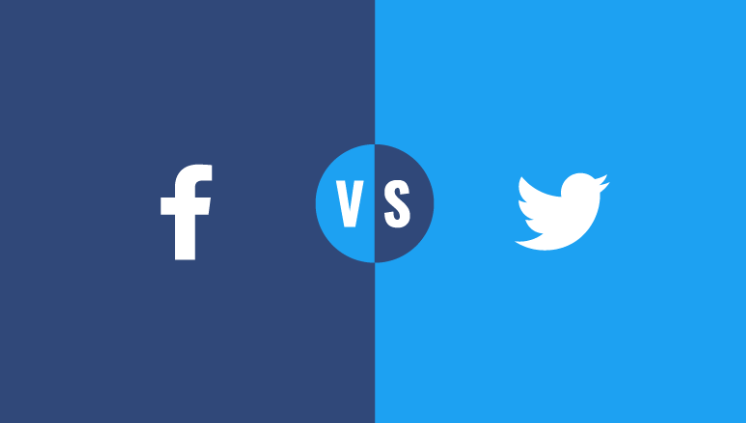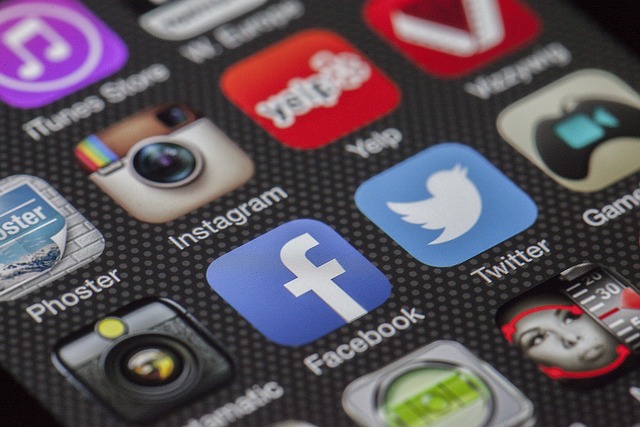
Social media has become an integral part of our lives, allowing us to connect, share, and stay updated with the world around us. Facebook and Twitter are two of the most popular platforms in this digital landscape, each with its own unique features and user experiences.
If you’re wondering what sets them apart, this article will shed light on what is the difference between Facebook and Twitter.
-
Purpose and Functionality
Facebook is an online social networking platform that allows users to create personal profiles, share photos and videos, connect with family and friends, and engage in various activities like playing games and joining groups. It offers a wide range of features, which makes it a comprehensive platform for personal social interactions.
Twitter, on the other hand, is a microblogging platform where users share short messages, known as “tweets,” with their followers. It focuses more on real-time updates, news, and trending topics. Twitter’s character limit of 280 characters per tweet encourages concise and quick communication.
-
Communication Style
Facebook emphasises a more personal and intimate form of communication. Users typically connect with people they know personally, such as friends, family, and colleagues. The platform allows for longer-form posts, comments, and conversations, facilitating deeper interactions and discussions.
Twitter, with its short and concise tweets, encourages a more public and open communication style. Users can follow and interact with anyone, including public figures, celebrities, and strangers. It fosters quick and brief exchanges, often leading to broader conversations involving a wider audience.
-
Content Sharing
Facebook excels in multimedia content sharing. Users can easily upload and share photos, videos, and albums, making it an ideal platform for sharing personal moments and memories. Facebook also supports live streaming, making it a popular choice for sharing real-time experiences.
While Twitter also allows users to share photos and videos, its primary focus is on text-based content. It’s a go-to platform for sharing news articles, opinions, and quick thoughts. Twitter’s retweet feature enables the rapid dissemination of information and facilitates discussions around trending topics.
-
Privacy and Audience Reach
Facebook offers extensive privacy settings, allowing users to control who can view their posts, profile information, and photos. Users can create private groups, limit audience visibility, and customise their privacy preferences. This level of control makes Facebook an attractive choice for those who prioritise privacy.
Twitter, on the other hand, leans more towards public visibility. By default, tweets are visible to anyone unless the user has a private account. Twitter is designed for public conversations and reaching a broader audience. Its open nature makes it easier for users to discover and engage with new people and topics.
Maximising Your Social Media Presence with SEO Companies
Considering the differences between Facebook and Twitter, the choice between the two depends on your specific needs and preferences. If you prefer a platform for personal connections, sharing multimedia content, and a higher level of privacy control, Facebook might be your go-to choice. On the other hand, if you enjoy quick updates, real-time conversations, and engaging with a broader audience, Twitter can provide a dynamic social experience.
When it comes to optimising your social media presence for your business or brand, hiring a search engine optimisation company can make a significant difference. A professional SEO company can help you leverage the power of both Facebook and Twitter to maximise your reach, engagement, and brand visibility.
Consider reaching out to an SEO company that specialises in social media management. They can create a tailored strategy for your business, ensuring your Facebook and Twitter profiles are fully optimised, engaging, and aligned with your marketing goals. By subscribing to their services, you can focus on running your business while the experts handle your social media presence.
Conclusion
Facebook and Twitter offer distinct user experiences and cater to different communication styles. Facebook excels in personal connections and multimedia content sharing, while Twitter emphasises quick updates and public conversations. Understanding these differences can help you make an informed decision about which platform suits your needs best. Additionally, partnering with an SEO company can ensure your social media presence is optimised for maximum impact and reach. So, whether you choose Facebook, Twitter, or both, make the most of these platforms and unlock the power of social media for your personal or business endeavours.





